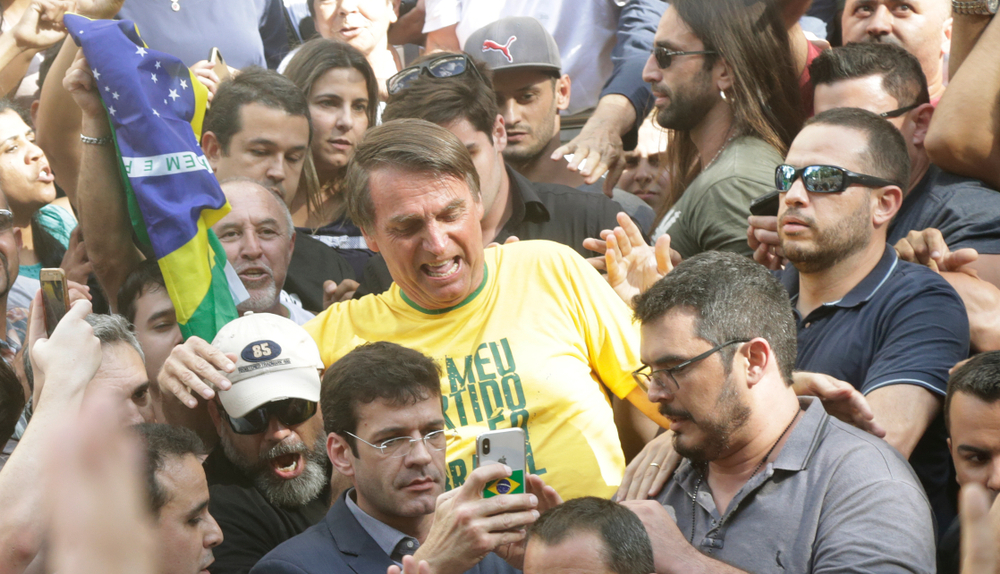On September 6, 2018, far-right Congressman Jair Bolsonaro’s campaign had prepared a rally with supporters around the central square of Juiz de Fora, a city of 550,00 inhabitants, two hours from Rio de Janeiro. Campaign managers were somewhat concerned about the event, as Juiz de Fora had traditionally been a stronghold for the center-left Workers’ Party. But, upon arriving in the square, Mr. Bolsonaro was met by—according to his staff’s own calculations—roughly 30,000 supporters, all chanting his name. The candidate, who was leading opinion polls with 22 percent of voting intentions, decided to let himself be carried on the shoulders of his partisans.
All of a sudden, Mr. Bolsonaro’s face went from a festive smile to a semblance of pain. People around him began shouting in panic, and a fracas broke out. Something was clearly wrong, but nobody knew exactly what had happened. “Bolsonaro was punched!” some said. Others claimed it was a gunshot wound. In reality, they had just witnessed a stabbing—an attack that nearly cost Mr. Bolsonaro his life, and further plunged Brazil into political radicalism.
For many, the stabbing changed the course of Brazilian politics. It certainly has had many consequences. For one, it continues to take...


 Search
Search






































